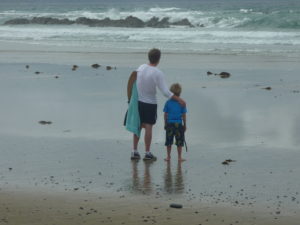“Empathy not only matters, it is the foundation of effective parenting” – John Gottman
Behaviour is Communication
If your child’s behavior was words, what would he/she be trying to tell you? When you were young, did your parents walk away from you if you were misbehaving or angrily put you in a separate room? Our parents and grandparents were not able to benefit from all of the current research on the importance of connecting with your child vs. intimidating and disconnecting.
Tips for Becoming an Emotion Coach
Empathy is the key to developing trust with your children. Hearing their emotions (through the behavior), picking up on the cues, and matching your responses with empathy that reflects how they’re feeling, invites an opportunity to connect and then teach. Mary Sheedy Kurcinka, the excellent author of Kids, Parents and Power Struggles, has written some excellent chapters on empathy and emotion coaching. The following ten tips are her advice for becoming an emotion coach:
*Connect instead of disconnect
*Assist instead of taking over
*Listen rather than lecture
*Stop firmly rather than grabbing
*Help instead of abandon
*Explain instead of force
*State rather than shriek
*Smile more, frown less
*Think about your relationship in the long run
*Start with a single step
Individuals who openly express their emotions, are respectful of others’ emotions, are calm, caring and happy, able to control their anger and be comforted when they are upset, have higher levels of resilience than those who don’t have these abilities. These people show empathy towards others, have the ability to resolve conflict and know how to use humor to cope. They develop coping skills for negative emotions which decreases the likelihood of them turning to negative coping strategies, such as alcohol or substance abuse, to cope with these emotions later in life.
You are your child’s greatest influence – how you model the handling of your emotions will be patterned by your child. When you are angry you do have a choice as to how your react. Press the “pause” button and take a few seconds to think of the consequences of your next actions.
Have a wonderful week,
Warmly,
Want to Connect?
Subscribe now to receive free weekly parenting tips and inspiration.








